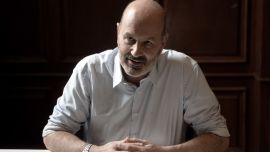Polls show that, several decades ago, when most North Americans, Europeans and East Asians were much poorer than they would soon become, they were far more likely to trust their elected representatives than they do today. Even the many who found it hard to make ends meet assumed that things would get better for them in the not so distant future, as indeed they did until what the French call “the 30 glorious years” which followed World War II and just about everyone benefitted from economic growth started petering out.
Though overall output did continue to increase in the advanced economies, large numbers of people saw their incomes stagnate. According to some specialists, in the United States middle-class wages, as measured by purchasing power, remain much the same as they were over half a century ago, while those pulled in by high earners have skyrocketed. In Europe, economic trends have been even more dispiriting than in the transatlantic powerhouse.
Awareness that “ordinary people” are getting left behind by “elites” whose members think they thoroughly deserve their good fortune because they are brighter and more virtuous than the rest is behind the rise of Donald Trump in the United States and the “extreme right” in Europe. Abandoned to their fate by leading Democrats and socialists, people are turning towards politicians who are willing to take on the system they think has betrayed them. Fuelling the resentment they feel is the haughty behaviour of those who are doing nicely and enjoy subjecting them to lectures on their alleged moral failings.
Naturally enough, the many men and women who want to be proud of the country they were born into do not take kindly to being told that it has always been a nasty criminal enterprise based on slavery, racial prejudice and colonial greed and that, in any case, the era of “white supremacy” is well and truly over so they had better get used to being put in their place.
In the recent elections to the European Parliament, parties which are habitually described as “far right” or “neo-fascist” by defenders of the status quo did relatively well, while leftist and “green” ones were severely punished. This was understandable. In Europe, as in the United States, left-wing organisations have been commandeered by relatively wealthy individuals who have little real interest in working-class concerns. For their part, the European “greens” took advantage of a brief moment in the sun to ram through policies that immediately made life even harder than before for less well-off people, as was made clear first by the revolt of the “yellow vests” in France and then by huge farmers’ protests in the Netherlands, Germany, France and other countries. “Net zero” carbon emissions may be a desirable goal, but if approaching it requires making it more expensive to drive old-fashioned motorcars, having people choose between freezing in winter and spending large sums of money to update their heating arrangements, and ordering farmers to stop using chemical fertilisers, only those who have plenty of money will find such a policy attractive.
On both sides of the Atlantic, the hardships endured by those in the lower half of the economic heap have been made less bearable by the willingness of those in power either to encourage mass immigration, which depresses wages for low-level jobs, or pretend there is nothing they can do to bring it to a halt. As this is felt to be unfair towards those who in one way or another have to make room for the newcomers, it is doing much to fuel discontent.
Every bit as galling is the outspoken contempt of well-heeled progressives for anything that in their view smacks of patriotism or a sense of belonging to a particular community accompanied by a desire to preserve it for future generations. In the US, the influx of people – mainly Latin Americans but also including many Africans, Asians and Middle Easterners – has proved so unpopular that, to the disgust of those Democrats who are keen on open borders, Joe Biden is trying to persuade voters that he will do whatever is necessary to slow it down. In Europe, the situation is made even worse by the unbridgeable cultural and religious differences between the natives and most of those who want to live alongside them.
Despite everything that has happened over the centuries, Europeans who think of themselves as progressives are unwilling to take Islam as seriously as it deserves. They are strangely reluctant to understand that it entails a complete philosophy of life which is incompatible with what they themselves believe ought to be European values. It may be true that most Muslims are kind-hearted and peace-loving folk who would never dream of doing harm to their neighbours, but even they or, as has often happened, their offspring, can find it difficult to resist the temptations offered by a stern religion that is unabashedly imperialistic and supremacist.
It is sometimes said that what Islam needs is a “reformation” similar to the ones that took place hundreds of years ago in Europe, but while for Christians “going back to basics” usually means turning one’s back on luxuries and adopting a benignly simple way of life, for Muslims it implies waging Jihad against all unbelievers.
It is generally agreed that hostility towards mass immigration by Muslims, which has already drastically changed the demographic make-up of many European cities and led to a large number of terrorist attacks, greatly helped “extremist” movements to win more seats in the European Parliament. While some parties merely want to slam the doors shut, others – which now include some, like the ones in Denmark, which are regarded as moderately leftist – are in favour of the deportation of millions who already live in Europe but have shown little interest in adopting the local customs.
This is a trend which seems certain to win more adherents as immigrant communities make their presence felt, which many have been doing by staging angry street protests against Israel with the whole-hearted support of their leftist allies. If, as could happen in France where the Olympic Games are about to get underway, Islamist fanatics commit more terrorist atrocities in the coming months, proposals that are now considered by most to be unacceptably extremist would in all likelihood strike middle-of-the road citizens as being eminently sensible. For “multiculturalism” to work, people belonging to all the groups involved must be willing to rub along together, but in most parts of the world there have always been some that, for what by their own lights are excellent reasons, have been notoriously reluctant to do so.




















Comments